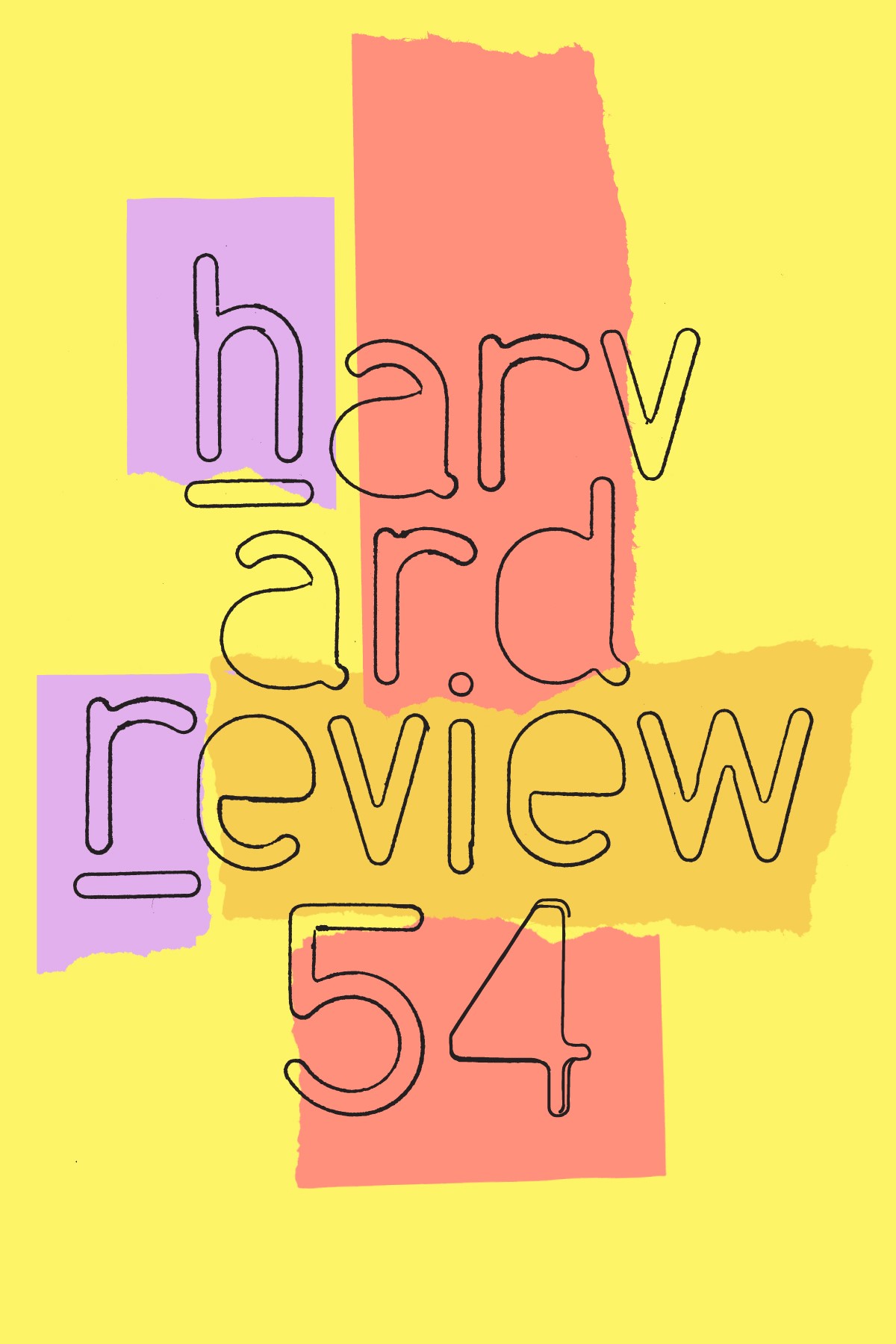HR 54 Editorial
by Neel Mukherjee
When Christina Thompson, the editor of Harvard Review, invited me to guest edit HR54, she set me a certain remit—to open up the pages of the magazine to international writers. This issue, my editorial debut, features writing from India, Mexico, South Africa, Trinidad, United Kingdom and, of course, the United States. Not ranging over a lot of places, one might think, until one considers where they take us. In an excerpt from his new novel-in-progress, Edmund White channels a Texan in Paris—a city White knows and understands with the entirety of his heart and soul. Michael Moore takes us to Italy in the 1620s in his forthcoming translation of that towering masterpiece of nineteenth-century Italian literature, Alessandro Manzoni’s I Promessi sposi (The Betrothed). And Hirsh Sawhney, in an essay on his own intellectual coming of age, gives us the Kolkata of the great Indian writer Mahasweta Devi.
From outside the US, we have a pitch-perfect short story from the South African writer Ivan Vladislavić, winner of a Windham Campbell Prize for fiction in 2015. Vladislavić is much less well known than he should be in America; I consider him to be one of the greatest living English-language writers. With each book, he advances the game formally, conceptually, and stylistically. His extraordinary novel, Double Negative, and the startlingly original Portrait with Keys, on his home-town, Johannesburg, are two of the true masterpieces of our century. The current issue also features a marvelous excerpt from the British-Trinidadian writer Amanda Smyth’s third novel, Fortune, set in Trinidad during the oil-prospecting 1920s, and the final chapter of the award-winning Indian novelist Anjali Joseph’s fourth novel, Keeping In Touch. In conversation with these two are two American writers: Eve Gleichman, winner of the Kenyon Review Short Fiction Contest in 2016, and the bestselling YA novelist Marie Rutkoski with an excerpt from her first novel for adults.
A different kind of grouping presents itself when I consider the non-fiction contributors. Chloe Aridjis (Mexico-UK), Michael Carroll (US), and Vestal McIntyre (US) are all award-winning fiction writers who have written away from their usual genre for this issue. Aridjis (whose father, the renowned Mexican poet Homero Aridjis, wrote a poem about the newborn Chloe titled “Insomnia begins in the cradle”) has battled insomnia for almost all her life and her essay here turns on the topic of sleeplessness. McIntyre’s memoir-essay—a piece that could just as easily be read as a short story—takes us to Idaho, where the narrator’s well-meaning parents take in refugees from the troubled corners of the world, much to the embarrassment and chagrin of the teenaged protagonist. Meanwhile, Michael Carroll, in a piece extracted from his memoir-in-progress on twenty-four years of life—and counting—with his life-partner Edmund White (see above), considers the bonds implied by different types of relationships.
We also have poetry from Katharine Craik, who hails from Scotland and is an early modern scholar and a professor at Oxford Brookes University, and from David Herd, professor of modern literature at University of Kent. Jenny Johnson, a Whiting award-winning poet, is joined in the issue by Michael Kelleher and the historian and poet Julian Gewirtz, whose marvelous long poem considers the insidiousness of the iPhone.
As with most issues of Harvard Review, however, what distinguishes this collection is not so much its internationalism as the heterogeneity of its subjects and styles and the tremendous talent on display. The terrain covered is immense. We have narrative, both fictional and non-fictional, and poetry ranging from polyamory to the ways insomnia has marked culture. We have concerns of alienation, foreignness, assimilation, and race from different corners of the world; we have themes of horror and joy; we have work centering on friends and siblings and couples, on neighbors and lovers and strangers. Jenny Johnson, who holds Gerard Manley Hopkins close to her heart, would have called this variousness “pied beauty.”
The issue also includes a very special feature on the work of the Mexican photographer, Graciela Iturbide. Iturbide, winner of the Hasselblad Award in 2008, whose rich images explore the razor thinness between the mundane and the mysterious, is on the cusp of global renown. Our selection of her work, which is accompanied by a short interview, appears courtesy of the Boston Museum of Fine Arts, which recently mounted Iturbide’s first solo international exhibition.
It has been an absolute pleasure gathering the pieces for this volume and working with Christina Thompson and Chloe Garcia Roberts. In fact, so happy has the experience been that I’ll be guest-editing HR56, out in June 2020.
Published on November 16, 2024
First published in Harvard Review 54

